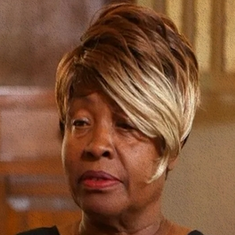 A new study by Ranita Ray, an associate professor of sociology, and Maxine Baca-Zinn, an endowed professor at the University of New Mexico, finds that Black and immigrant girls of color often face indifference and even cruelty in the classroom.
A new study by Ranita Ray, an associate professor of sociology, and Maxine Baca-Zinn, an endowed professor at the University of New Mexico, finds that Black and immigrant girls of color often face indifference and even cruelty in the classroom.
The authors studied one middle and one elementary school in a large metropolitan school district, following a cohort of 80 students from fourth through sixth grade inside classrooms, school corridors, and playgrounds. The majority of the faculty at these schools were White.
In the elementary and middle schools studied, Black and immigrant girls of color experienced gendered racial harassment, erasure of intellect, and estrangement within their communities. The authors conceptualized gendered racial harassment as bullying ̶ defined as repeated emotional or physical violence contextualized by a power imbalance ̶ of gender and racially oppressed people. This included the verbal abuse of Black and immigrant girls of color by teachers.
The erasure of intellect was defined as the overlooking of intellectual contributions made by girls of color, inside the classroom, because of their gender and race. Estrangement within their communities refers to how cleavages and divisions were created among girls of color through school practices such as academic tracking.
Dr. Ray stated that “for Black and recent immigrant girls of color the classroom is a psychologically traumatizing, alienating, and emotionally violent place where they face gendered-racial harassment from teachers, their intellectual contributions are erased, and they become estranged from their communities inside schools. Further, I found that immigrant girls are denigrated and simultaneously used to perpetuate harm on Black girls. Most importantly, the gains of some racially marginalized girls in school are used to justify hostility against all of them.”
“My position as a South Asian immigrant woman had implications for data collection and analyses,” Dr. Ray added. “Given that teachers were aware of my position as a brown immigrant, their remarks were likely tempered rather than exaggerated in my presence. As such, my findings are likely an attenuated version, and the classroom was perhaps a more hostile space for Black and recent immigrant girls of color in my absence.”
Dr. Ray joined the faculty at the University of New Mexico this year after teaching at the University of Nevada Las Vegas since 2013. She holds bachelor’s and master’s degrees from Presidency College in India. She earned a Ph.D. in sociology at the University of Connecticut.












I find that this treatment of teachers marginalizing girls in the very state where Dr. Ray taught was also prevalent, in the school when I sought a doctoral degree and was ostracized for writing “Dr,” after my name on the whiteboard in the classrooms. It does not end in the classroom, but extends to our positions in universities and colleges, which also penetrates erasure of intelligence, debases our character and is often targeted to your very being by negative comments from admin staff and the owners of private schools, whereby they rush to mention that they receive complaints about you from the parents.